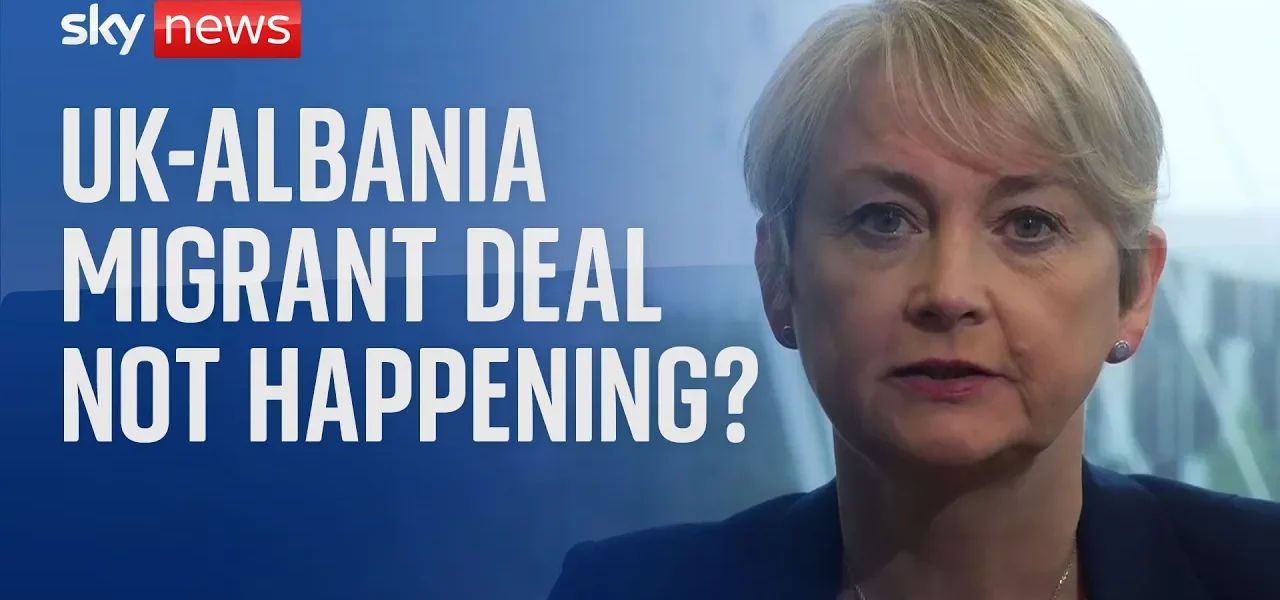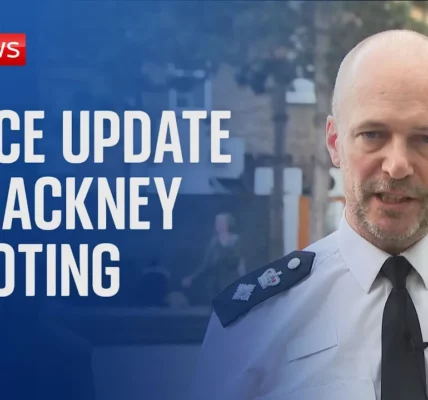UK Government’s New Border Security Command: An Overview

This article provides a comprehensive look at the recent initiatives taken by the UK government to enhance border security, the appointment of Martin Hitt as the new leader of the Border Security Command, and the collaboration with international law enforcement to combat organized crime.
Introduction
The UK government has announced significant changes to its approach to border security, particularly in its efforts to tackle organized immigration crime and the operations of criminal smuggler gangs. The tragic loss of lives over the weekend has underscored the urgency of these reforms. In this context, the appointment of Martin Hitt, a seasoned former police chief and army officer, as the head of the new Border Security Command represents a strategic move to consolidate efforts across various law enforcement agencies. This article delves into the details of these initiatives, their implications for migration policies, and international collaborations aimed at securing the UK’s borders.
The New Border Security Command
The establishment of the Border Security Command is a crucial part of a broader overhaul aimed at enhancing law enforcement operations against criminal smuggling gangs. This section explores the key components of this initiative.
Leadership and Structure
Martin Hitt’s extensive background in law enforcement and military service positions him well to lead this new command. The command will unify various agencies, including:
- Border Force
- National Crime Agency
- Local police forces
- Intelligence and security agencies
By integrating these forces, the UK aims to create a more cohesive and effective response to border security challenges.
International Collaboration
A significant aspect of the Border Security Command’s strategy involves collaboration with European law enforcement agencies. This cooperation is essential for:
- Coordinating efforts against transnational smuggling operations
- Sharing intelligence and resources
- Implementing joint operations to dismantle criminal networks
This partnership is critical, particularly in light of recent developments in Italy, where a notable reduction in boat crossings has been reported.
Addressing Organized Immigration Crime
The UK government’s focus on organized immigration crime is paramount. This section examines the specific strategies being implemented to combat smuggling and trafficking.
Current Situation and Challenges
Despite efforts to curb illegal immigration, criminal gangs continue to undermine border security, resulting in tragic losses of life. The need for robust measures is more pressing than ever, as highlighted by recent incidents in the Mediterranean.
Strategic Initiatives
The government is implementing various strategies to tackle these issues, including:
- Establishing new Europol task forces focused on organized crime.
- Enhancing training and resources for law enforcement agencies.
- Developing fast-track arrangements for deporting individuals without legal rights to remain in the UK.
These initiatives are designed to ensure that immigration rules are respected and enforced effectively.
International Migration Policies: Focus on Albania
The UK government’s stance on international migration policies, particularly regarding Albania, has raised questions. This section discusses the implications of these policies and their differences from previous arrangements.
Comparison with the Rwanda Scheme
While the UK has previously engaged in controversial schemes, such as the Rwanda program, the arrangement with Albania differs significantly:
- The Rwanda scheme has faced criticism for its high costs and low effectiveness.
- The Albanian arrangement is designed to facilitate the expedited processing of migrants from safe countries.
- Monitoring by the UNHCR ensures compliance with international standards.
As the UK evaluates its options, it remains committed to exploring arrangements that demonstrate tangible results.
Conclusion
The establishment of the new Border Security Command under Martin Hitt marks a significant step forward in the UK government’s efforts to enhance border security and combat organized immigration crime. By fostering international collaborations and implementing strategic initiatives, the UK aims to address the pressing challenges posed by criminal smuggler gangs. As these developments unfold, stakeholders will be keen to observe the effectiveness of these measures in securing the UK’s borders and ensuring the safety of its citizens. For further updates on border security and immigration policies, stay connected with our latest articles.
“`




